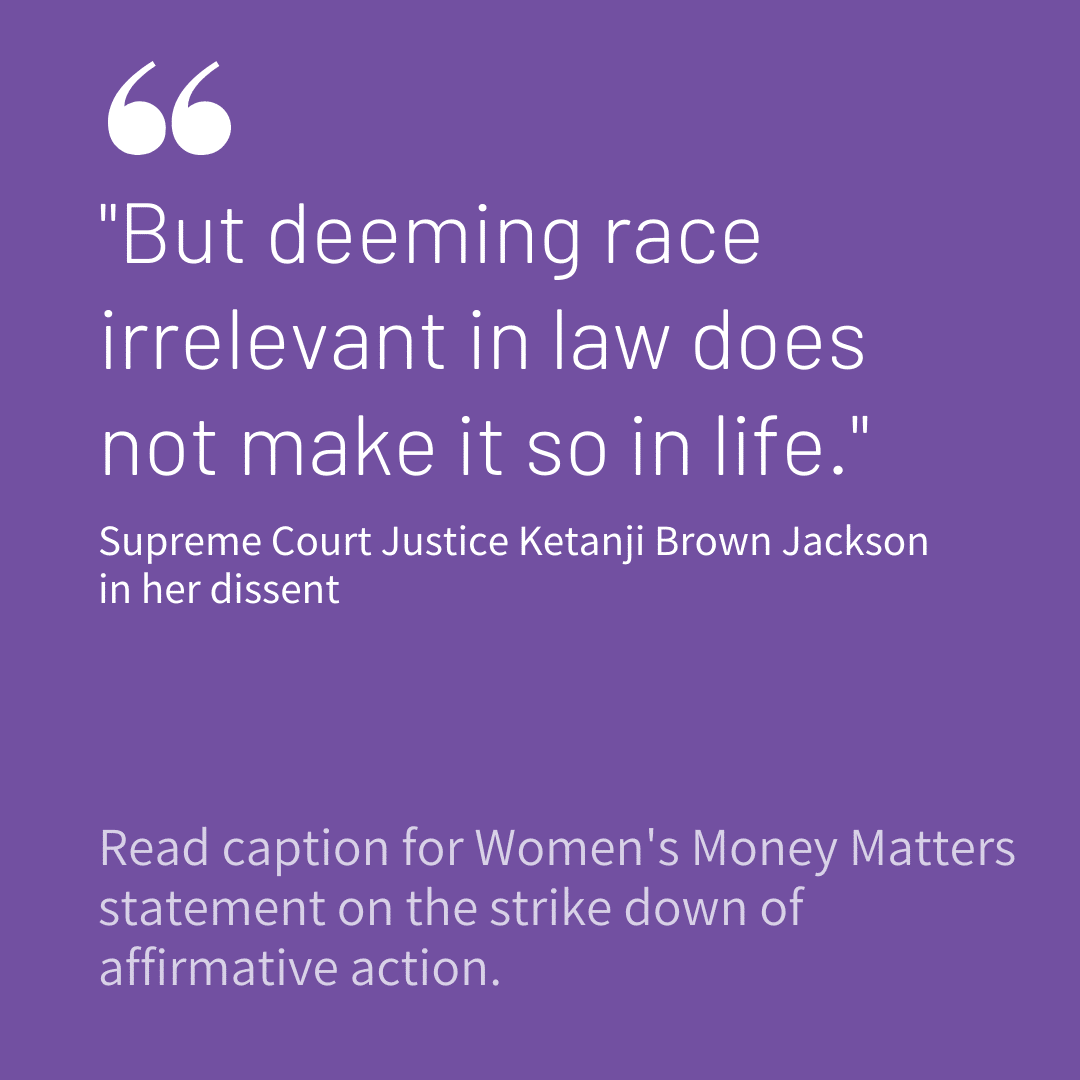
As an organization that advocates for women living on low-incomes, their families, and their communities, we are discouraged, disheartened, and disappointed by The Supreme Court’s decision to strike down affirmative action in college admissions. This decision will negatively affect the already marginalized communities we serve, who are primarily Black, Indigenous, and other People of Color (BIPOC) – communities who already lack opportunities for economic mobility and generational wealth building.
Affirmative action is crucial for promoting economic mobility and breaking the cycle of poverty among BIPOC people. Historically, systemic discrimination and inequality have hindered the progress of marginalized communities, particularly people of color. Affirmative action policies aim to level the playing field by providing opportunities and addressing the structural barriers that have perpetuated racial disparities. By increasing access to education, employment, and other resources, affirmative action enables individuals from disadvantaged backgrounds to overcome the obstacles they face and pursue upward mobility.
In the past, by implementing policies that promote diversity and inclusion in educational institutions, affirmative action helped to address historical disadvantages and foster equal access to quality education. This not only enhances the educational experience for all students but also creates pathways for BIPOC people to gain the skills and knowledge necessary for economic success. With improved access to education, individuals from marginalized backgrounds can secure better job opportunities, higher wages, and improved prospects for their future. Thus breaking down barriers and challenging stereotypes, affirmative action can help dismantle the structural inequalities that have hindered the economic progress of BIPOC people, contributing to the overall reduction of poverty rates within these communities.
This decision by the Supreme Court to end affirmative action will end the educational opportunities that have been essential for promoting economic mobility and lifting BIPOC people out of the cycle of poverty. Affirmative action not only benefits individuals but also contributes to a more inclusive and equitable society, where everyone has the chance to thrive and contribute to the nation’s economic growth.


